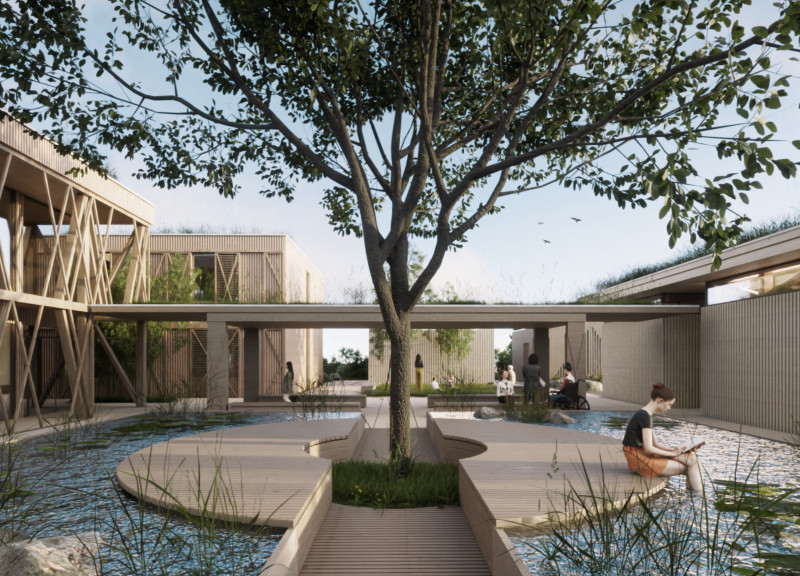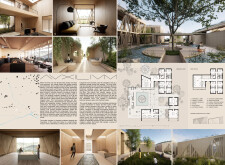5 key facts about this project
### Project Overview
Located in a tranquil Alpine setting, the design emphasizes a harmonious relationship with the surrounding landscape. The intent is to create a multifunctional retreat that addresses diverse user needs, ranging from relaxation to therapeutic activities, while prioritizing comfort and natural elements. The architectural approach integrates indoor and outdoor environments to foster a peaceful atmosphere appropriate for modern living.
### Material Selection and Sustainability
The project employs a deliberate selection of materials, prominently featuring wood for its warmth and natural aesthetics, which enhances the inviting character of the spaces. Large glass panels are incorporated to maximize natural light, reducing reliance on artificial lighting and strengthening the connection to the outdoor setting. Concrete elements provide structural durability, counterbalancing the softness of wood.
Sustainability is a core consideration, as the orientation of the building is strategically chosen to optimize daylight and minimize energy loss. The incorporation of local materials further supports sustainable practices by reducing transportation impact. The interior layout promotes energy efficiency, with carefully positioned windows and overhangs that facilitate passive solar heating.
### Spatial Organization and User Experience
The interior of the building is thoughtfully organized into communal and private areas to encourage relaxation and social interaction. Outdoor spaces, including terraces and gardens, are integrated to enhance the living experience and facilitate a seamless transition between indoors and nature. Dedicated meditation and relaxation zones, highlighted by calming water features and abundant greenery, underscore a commitment to mental well-being.
Accessibility is also a focal point, as design elements such as gentle ramps and wide hallways ensure that the environment is inclusive for all users. Multifunctional spaces, including therapy and multi-purpose rooms, are incorporated to address various needs while fostering a sense of community among inhabitants.




















































